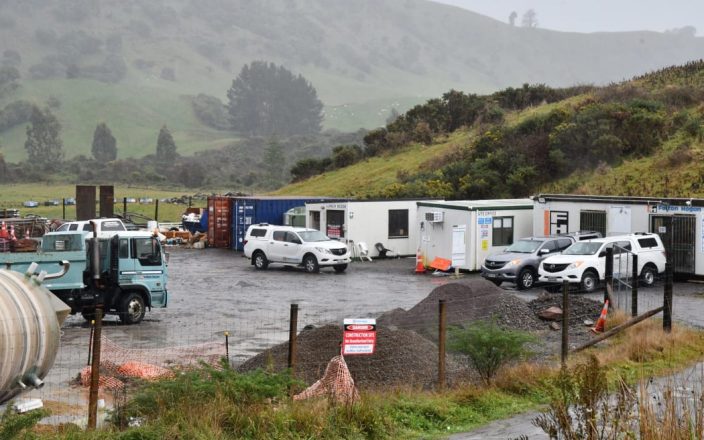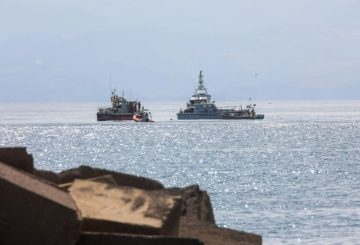Fulton Hogan is working on sewerage construction on Tarawera Road, near Lake Rotokākahi. The Rotorua Lakes Council wanted a legal order to keep protesters at least one metre away from the site but was unsuccessful for now. A judge decided not to grant the request but warned that any destruction or disruption would prompt legal action.
In May, the council asked the court for an injunction after some interference during construction. They claimed protesters had obstructed work between January 29 and February 1. The council’s infrastructure manager, Stavros Michael, stated they didn’t want to stop peaceful protests but wanted to ensure site safety.
Lake Rotokākahi is important to the local Tūhourangi community. The Lake Rotokākahi Board of Control, which is concerned about the pipeline construction near the lake, was involved in the application process. Board co-chairman Peter Moke organized a protest in January and stated that nobody from their group was responsible for the council’s legal actions.
The judge, Stephen Clark, put the council’s application on hold but said it could be renewed later. He noted that if evidence had been submitted sooner after the January incidents, it might have led to a different outcome. He described some incidents where workers faced dangers, but also highlighted that the evidence was mostly indirect or outdated.
Fulton Hogan claimed the protests created unsafe conditions, leading them to stop work on February 2. Despite communication attempts and a community meeting, no resolution was reached. The council believed further protests could disrupt the work and argued the injunction was necessary for safety.
The Lake Rotokākahi Board expressed their commitment to protect the lake and opposed the pipeline. They also stated the council’s decision to proceed with the project was flawed. The judge recognized their concerns, mentioning their rights to peaceful protest and access to the lake.
In his ruling, Judge Clark stated there was no current concerning behavior, so he could not support the injunction. He warned that any future destructive behavior during protests would likely result in renewed legal action. He acknowledged the board aimed for peaceful protest but mentioned a few reckless actions could lead to complications.
Overall, while peaceful protests are allowed, any actions to obstruct the work will face legal consequences. The judge reminded everyone that future applications might involve stricter terms.




























































